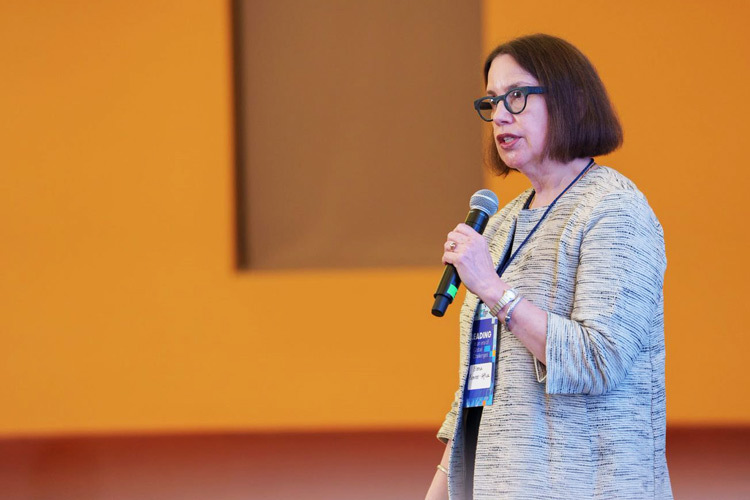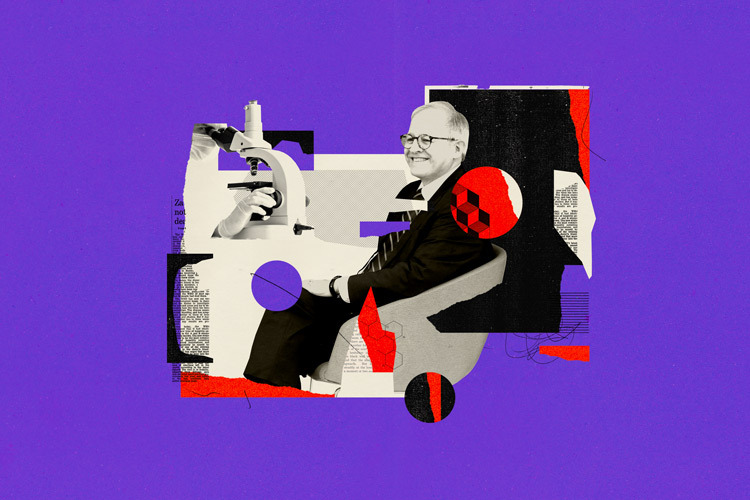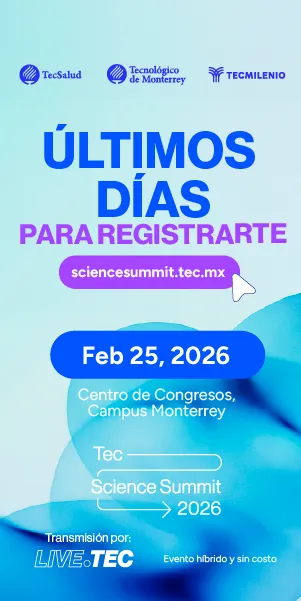Obesity, diabetes, and pandemics are public health issues that can be better addressed through collaboration between educational and healthcare systems to find innovative solutions.
Elena Fuentes-Afflick, Chief Scientific Officer at the Association of American Medical Colleges (AAMC), explains in an interview with TecScience during the 2024 International Health Leadership Forum that universities play a crucial role in promoting research, public policy, and education with a focus on health.
“Medical schools can improve public health by reassessing their curricula to ensure they are training students with the right perspective and preparation to provide services that are more responsible and responsive to the community’s needs.”
Fuentes-Afflick adds that, today, medical schools recognize that they are part of a community and can contribute to improving its health.
Elena is also a member of the National Academy of Medicine and the American Academy of Arts and Sciences. She has served as president of the Pediatric Research Society and the American Pediatric Society. Her work has focused on projects related to the health of the Latino community, healthcare disparities, and diversity in academic medicine.
Education, Policy, and Research for Better Public Health
The Chief Scientific Officer of the AAMC says that one of the major challenges for public health is investing in systems for disease monitoring, early detection, and intervention.
“The pandemic taught us the importance of being prepared and having strong infrastructure. Now, we can’t afford to let our guard down. We must continue to operate with the awareness that medicine and public health go hand in hand.”
To achieve this, Fuentes-Afflick emphasizes that universities need to collaborate with governments to ensure sufficient resources are allocated for educational initiatives, talent development, and addressing healthcare system crises.
She adds that this relationship should be fostered from the local level all the way to the federal level, where the exchange of ideas is encouraged and leaders are equipped with a clear understanding of the state of public health and the impact of policies designed to tackle major challenges.
In terms of research, Fuentes-Afflick highlights the importance of contributing new knowledge to medicine and public health. She also emphasizes the need for collaboration between research teams and healthcare professionals to generate information that can provide answers and be transformed into actionable solutions for the public.
For the AAMC representative, the use of emerging technologies like Artificial Intelligence (AI) remains a topic closely tied to research and public policy. She points out, “It’s not as simple as applying ChatGPT or another platform. We have to work together to address key questions around privacy, security, and understand the limits of the technology—particularly where it can truly contribute to solving the major challenges we face.”
During her participation in the forum, Fuentes-Afflick provided an overview of the AAMC and its collaborations with medical schools and faculties worldwide, including the Tecnológico de Monterrey.
As a leader in the field of research and science, she works with three teams: one focused on policy and scientific regulation, a council of faculty members and academic societies, and a center dedicated to promoting health equity within academic medical centers.
The organization is made up of members from the medical schools in the United States and Canada, representing more than 200,000 faculty members in health science academia.
10th International Health Leadership Forum
The School of Medicine and Health Sciences at Tecnológico de Monterrey hosted the 10th edition of the International Health Leadership Forum, where experts in education, technology, and healthcare discussed current challenges and the evolving landscape.
The forum, titled Leading in an Era of Global Challenges, explored topics centered around four key areas: transformative leadership; patient-centered education; artificial intelligence and digital health; and added value in healthcare delivery.
The event featured international speakers such as Elena Fuentes-Afflick, Michael Fung, Executive Director of the Institute for the Future of Education; Salvador Alva, business leader and former president of Tecnológico de Monterrey; among others.
The meeting was held at the Zambrano Hellion Hospital in San Pedro Garza García, Nuevo León.
Did you find this story interesting? Would you like to publish it? Contact our content editor to learn more at marianaleonm@tec.mx
















